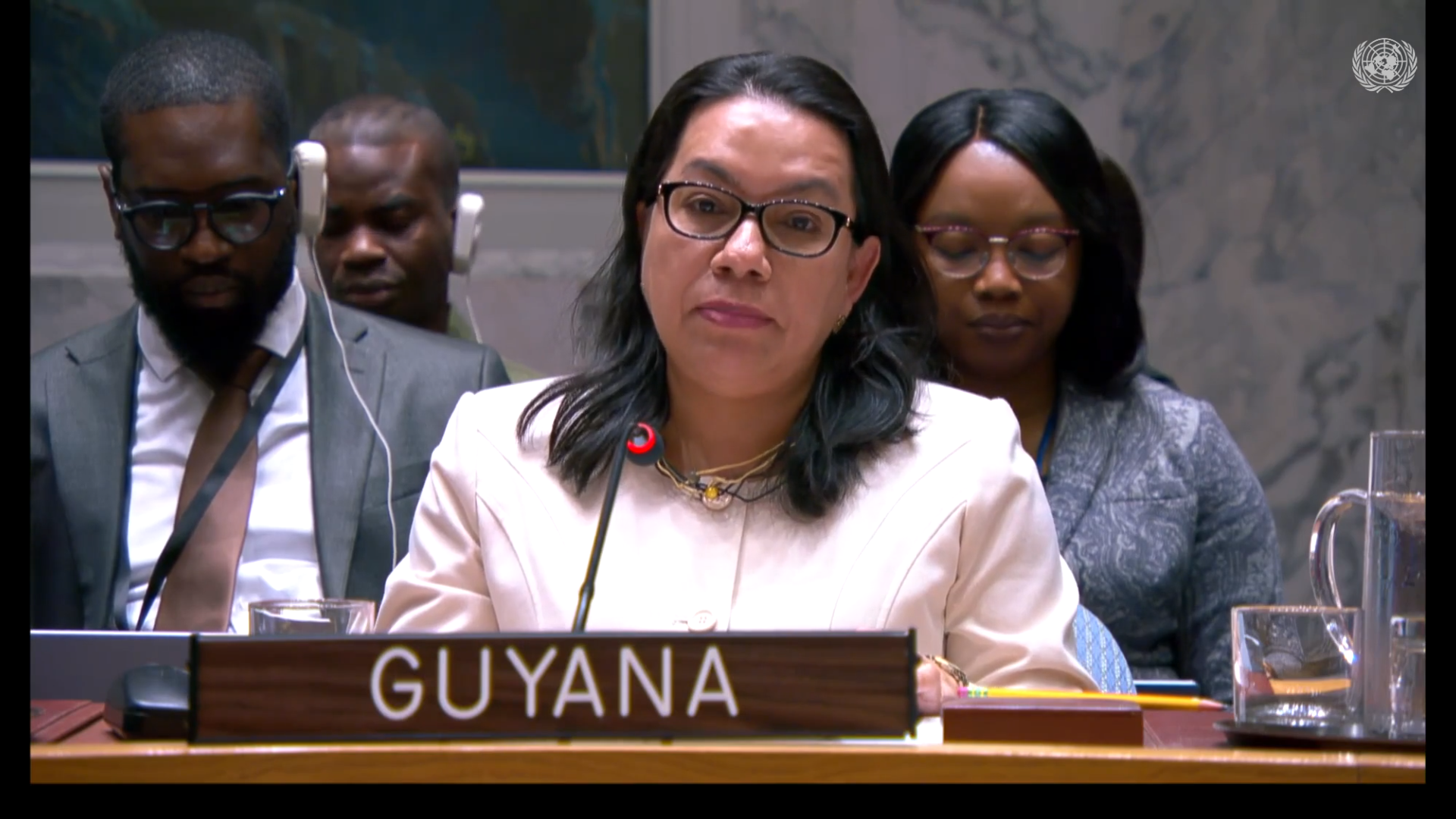Statement delivered by H.E. Carolyn Rodrigues-Birkett, Permanent Representative of Guyana to the United Nations, at Security Council Open Debate on "Strengthening maritime security through international cooperation for global stability"
Your Excellency Kyriakos Mitsotakis, Prime Minister of Greece,
Guyana welcomes Greece’s leadership and your participation in today's high-level meeting on strengthening maritime security through international cooperation for global stability, a topic of great importance for Guyana, as it is for the rest of the global community. We also thank Secretray-General Guterres for his insightful remarks and Mrs. Melina Travlos and Professor Christian Bueger for their briefings.
Mr. President,
Global cooperation is not just a desirable option but a necessity when it comes to maritime security. Just using one metric – the fact that over eighty percent of the volume of all global trade in goods is carried by sea makes such cooperation indispensable for global stability.
Together, the global community must be able to adequately respond to traditional and evolving challenges in the maritime domain. These include piracy, Illegal unreported and unregulated fishing, cyber security threats, threats against offshore installations, violations of established maritime boundaries, transboundary crimes, the protection and preservation of the marine environment and the impacts of climate change.
Protecting ports and related infrastructure is also a critical part of a holistic approach to maritime security. One that will guarantee the level of protection needed to secure vital global supply chains.
Recent threats to maritime navigation have exposed the vulnerabilities of maritime global trade routes and caused widespread disruptions to global trade and supply chains. The implications for national security were also acutely felt in many countries, thereby underscoring the urgent need for enhanced maritime security.
From attacks on merchant and commercial vessels in the Red Sea to the conflict in Ukraine and its impact on shipping routes in the Black Sea, the disruptions to global shipping in the past three years have had far-reaching consequences, including on global food and energy security. For example, the attacks in the Red Sea resulted in increased transit times and shipping costs as shipping lines rerouted trade around the Cape of Good Hope. In addition to financial implications, the extended routes contributed to higher greenhouse gas emissions, exacerbating environmental concerns.
Guyana commends the proactive and collaborative efforts which led to the Black Sea Grain Initiative in 2022, and the diplomatic efforts that led to the recent cessation of attacks against vessels in the Red Sea. We hope that these will reinvigorate collaboration on maritime safety and security.
Mr. President,
Guyana would like to emphasize the following four points:
First, Member States must uphold the UN Convention on the Law of the Sea (UNCLOS), which is the primary international framework for maritime governance.
Second, Guyana acknowledges the work of the International Maritime Organization (IMO) in promoting safe and secure shipping while ensuring freedom of navigation. We commend the 2024 updated technical cooperation profile through its "All Hands on Deck" strategy and is of the view that the menu of strategic proposals, including capacity building, investment in new systems, maritime infrastructure, and technology projects, is relevant to the discourse.
Third, in several parts of the world, geopolitical friction and conflicts are shaping how states and non-state actors utilize maritime spaces for power projection and influence. This underscores the need for a higher premium to be placed on international cooperation through dialogue, rather than competition, as the eventual fallout is usually felt by all irrespective of geography and physical distance.
Finally, Mr. President, the threats to maritime navigation and operations continue to evolve, as the effects of climate change compound traditional challenges. Warming in the Arctic Ocean for instance, with ice melting at an increasing rate will have far reaching consequences, including rising sea levels. Investments in early warning systems must go hand in hand with the application of affordable technologies to address existing vulnerabilities, including the impacts of climate change on maritime navigation. We also call for international cooperation in areas of technology transfer, information sharing and governance, including on the use of AI.
In conclusion, Mr. President, maritime security requires a strong collaborative approach from the local to the global levels. We must use all available tools to foster such approach if we are to tackle maritime security in a holistic manner.
I thank you.


